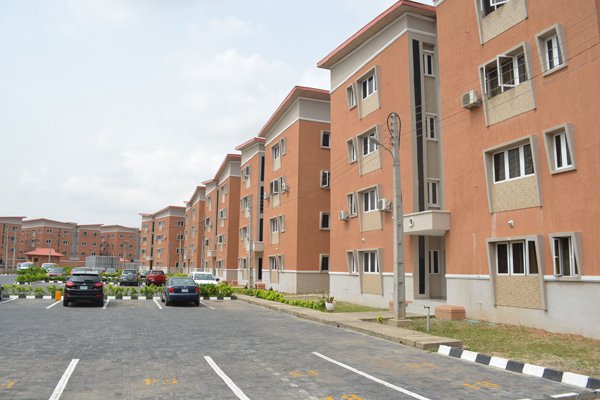Currency Devaluation; Nigerian Real Estate Market Declines

Experts say the real estate is witnessing an anomaly where the prices of houses are going down, while the cost of land is going up, a development linked to the depreciation of the Naira and unfixed cost of capital. Unless relevant stakeholders take urgent steps, the real estate sector, which has been seriously hit by the recession since last year, will not fare better in 2017.
This was the position of experts during the yearly review of the real estate industry anchored by a Lagos-based developer, Debo Adejana.With residential vacancy rate in Lagos put at around 33 per cent, 28 per cent in Abuja and 13 per cent in Port Harcourt, investors in the sector, are yet to see light at the end of the tunnel as companies and personal incomes continue to shrink in response to inflation.
ALSO READ: 5 Cities with the Highest Housing Deficit in Nigeria
The cost of cement, which is a major component in Building, is still uncontrolled from N1500 to N2500, while buyers have become more selective and picky, making quality and price a key factor.
There is also no difference in retails development, which came down leaving a vacancy rate of between 33-50 percent, among large shopping malls.Apart from few blue chip developers, who were able to raise capital, it was a sorry tale for many others.
Available data shows that real estate contributes about eight per cent to the Nigerian economy which is now in a recession following two consecutive quarters of GDP contraction. In addition to this, real estate has been in decline and has contracted so many times.
According to Tayo Odunsi, a real estate finance expert, the industry in 2016 was particularly hit by a delay in the passing of budgets.The economic infraction and recession, he said also forced investors to pull out from equity market leaving government as the principal actor, which borrowed extensively at a ridiculous rate.
As a result, businesses stifled and the real estate could not compete because of Foreign Exchange problems. In the first and second quarters, the real estate witnessed lull in-house, retail and office space prices.This development, he said, will continue in 2017, unless there is a defined foreign exchange policy, which must be implemented. According to him, there has been implementation problem even from those who define it.
Developers are not doing finished products because the finishing is the highest component, and import based. Subscribers are being asked to finish according to their financial muscle and taste. Also Business Development and Strategy Manager, Realty Point Limited, Akin Arogundade, said the Forex issues impacted much on the input components of the real sector, which are import- based. This, he said affected affordability of houses for a majority of Nigeria, while default rates got higher because many developers could not honour agreement in terms of quality and time of delivery.
CHECK: PROPERTIES FOR RENT IN NIGERIA
He, therefore, called a review of planning regulation in the country, saying the present regulation is archaic and not dynamic in meeting realities of the moment. According to him, infrastructure must be put in place for real estate sector, while government should serve as a regulator and an enabler.
For Olatodun Olushola, an architect, the economic situation has led to the oversupply of commercial spaces, the emergence of co-working spaces, and commercial retail space.
According to him, there is a lot of uncertainty in government policies and programmes, which affected the market. “The market does not like uncertainty, a lot of certainty is now taking place in government policies although many things are still inconsistent in many areas”. He noted.
ALSO READ: Should I Build My Own Home?
For Mortgage banker, Arinze Adigwe, people are now moving from the island to the mainland and businesses are now following the same trend. The Mortgage system is not working in Nigeria because we are still in a learning process and we do not understand the
“The issue of titles was a major factor. The government is a major contributor and the environment is not conducive. The government should change it to make mortgage works”, he said. On the issue of social housing, the stakeholders said it requires deliberate design, finances, cost effectiveness, and control of those assessing them since it is not for profit.
They also agreed that 2017 would be better than last year at least coming from the negative growth of minus two point two to two point two growth.To them, affordable housing is a reality with proper infrastructure and design of Nigeria homes. They, however, noted that the environment is very risky for mortgages, but could be better if underwriting is made more stringent from the beginning.










